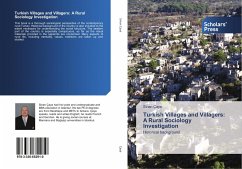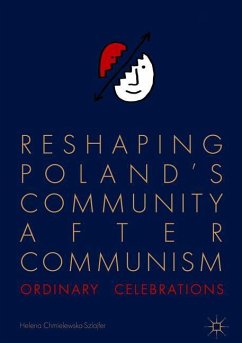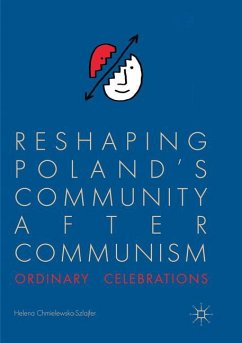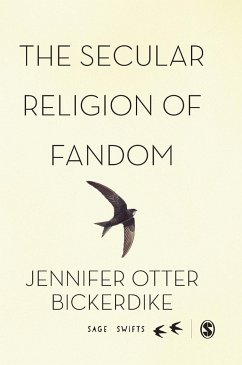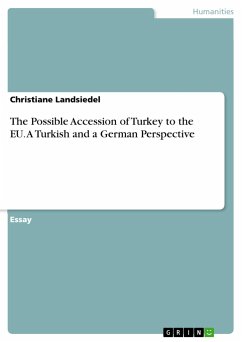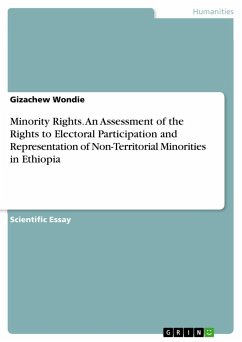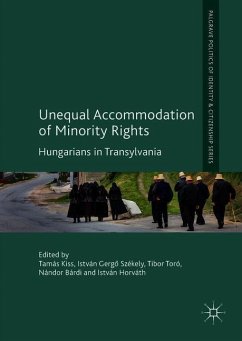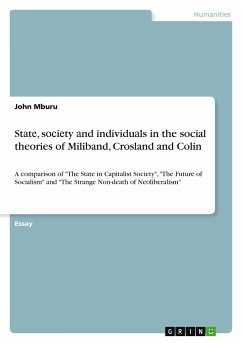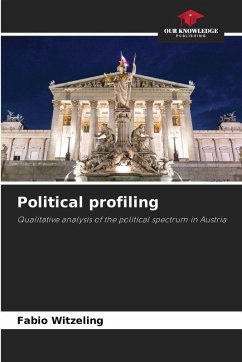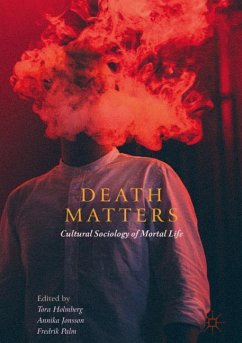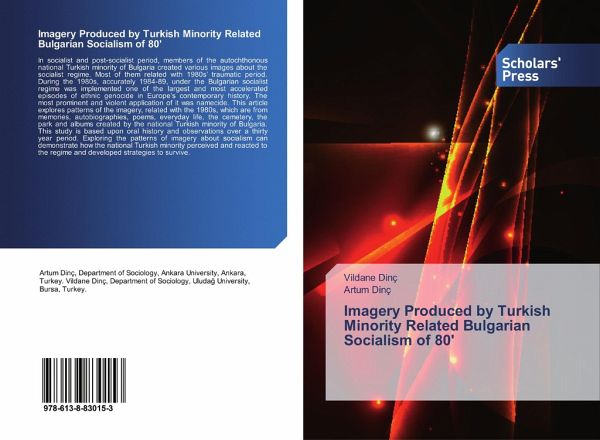
Imagery Produced by Turkish Minority Related Bulgarian Socialism of 80'
Versandkostenfrei!
Versandfertig in 6-10 Tagen
30,99 €
inkl. MwSt.

PAYBACK Punkte
15 °P sammeln!
In socialist and post-socialist period, members of the autochthonous national Turkish minority of Bulgaria created various images about the socialist regime. Most of them related with 1980s' traumatic period. During the 1980s, accurately 1984-89, under the Bulgarian socialist regime was implemented one of the largest and most accelerated episodes of ethnic genocide in Europe's contemporary history. The most prominent and violent application of it was namecide. This article explores patterns of the imagery, related with the 1980s, which are from memories, autobiographies, poems, everyday life, ...
In socialist and post-socialist period, members of the autochthonous national Turkish minority of Bulgaria created various images about the socialist regime. Most of them related with 1980s' traumatic period. During the 1980s, accurately 1984-89, under the Bulgarian socialist regime was implemented one of the largest and most accelerated episodes of ethnic genocide in Europe's contemporary history. The most prominent and violent application of it was namecide. This article explores patterns of the imagery, related with the 1980s, which are from memories, autobiographies, poems, everyday life, the cemetery, the park and albums created by the national Turkish minority of Bulgaria. This study is based upon oral history and observations over a thirty year period. Exploring the patterns of imagery about socialism can demonstrate how the national Turkish minority perceived and reacted to the regime and developed strategies to survive.



